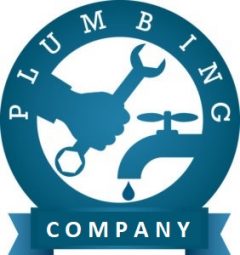8 Useful Plumbing Maintenance Tips
Nearly every homeowner experiences a plumbing problem now and then. Here are 8 helpful plumbing tips to keep things working well in your home

Your home’s plumbing is an intricate system that brings in freshwater, heats it up for washing, and distributes it around the house. Easy access to fresh water and sanitation is so commonplace that it’s easy to take for granted, at least until something goes wrong with it.
Fortunately, it’s not too difficult to take care of your plumbing and avoid the most common issues, like leaks, broken and rusted pipes, and clogs. Most fixtures will last a long time — sinks and toilets can last for decades.
These plumbing tips will help you keep your system in good shape, so you can avoid the headaches and inconvenience of unexpected problems.
1. Don’t Flush That
The only thing you should flush down a toilet is your own waste and toilet paper. A toilet bowl is not a trash can, so things like sanitary products, cotton swabs, plastic, hair, and cardboard can build up in the line and cause a nasty clog. Unless you want to pay a plumber a lot of money to pull a very nasty surprise out of your sewer line, put a wastebasket in the bathroom and use it.
2. Check for Tank Leaks with Food Coloring
Is your toilet tank leaking into the bowl? Test it by putting some red food coloring in the tank and waiting an hour or so. If it’s leaked into the bowl by that time, you need to replace the tank ball to keep water from seeping out and lower your water bill.
3. Stop an Overflowing Toilet in Its Tracks
Is there anything more hair-raising than watching the water level slowly rise in the toilet bowl? If you think it might overflow, open the tank and push the flush valve down. This will stop the water and buy you time to address the issue.
4. Clear a Blocked Toilet with Soap
Don’t have a plunger? You don’t need one to clear a blocked toilet. You can often clear the blockage by adding hot water and soap to the bowl. Get the water as hot as you can out of the tap, and add as much as you can to the bowl until it’s full. Add liquid soap, and don’t be shy — you can’t add too much. The hot water will help break down the clog and the soap will help it get moving again.
5. Clean Showerheads with Vinegar
Over time, showerheads get clogged with mineral deposits. This can make them less effective or even completely block them up. To clear the mineral deposits, unscrew the showerheads and soak them in vinegar for 24 hours. If that doesn’t do the trick, it’s time to replace the showerhead.
6. Flush Your Water Heater
Mineral sediments can accumulate in the bottom of your water heater, so you need to flush it once a year or so. Doing so will help it last a lot longer. If it needs to be flushed badly, it’ll start to make banging sounds. That’s the water bubbling up through a thick layer of sediment on the bottom of the tank. If not flushed regularly, sediment build-up can cause the tank to rust out.
In addition to flushing your water heater yearly, you should also change the anode rod every five years. A water heater can last a long time if you take good care of it.
7. Install Mesh Drain Covers
Hair, chips of soap, and other debris cause clog when they fall into your drains. Mesh drain covers in your sinks, shower, and bath can save you the trouble of having to snake your drains regularly.
8. Inspect for Leaks Regularly
Leaky faucets and running toilets can cost you hundreds in water bills. Fixing them is usually easy and can save you a lot of money. Stay diligent about repairing them.
Many causes of plumbing leaks, like corroded and rusted-out pipes, don’t happen all at once. Regularly inspect any exposed pipes in your home for signs of damage or decay. Rust, warping, and drops of water on the outside of the pipes all indicate a problem that a qualified plumber should address.
You rely on your home’s plumbing every day, so take the time for plumbing maintenance. A little basic care can go a long way towards protecting your plumbing from clogs and preventing leaks and water damage.
